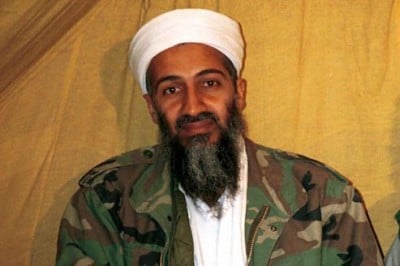Bin Laden’s son asked US for Father’s Death Certificate. WikiLeaks

WikiLeaks has released a letter revealing how one of Osama bin Laden’s sons had asked Washington for a death certificate after US Navy SEALS said they had taken him out.
The document is one of 70,000 collectively dubbed “The Saudi Cables.” The trove, in its turn, is part of an even bigger collection totaling more than half a million papers tracing back to the Saudi Foreign Ministry and other institutions in the country. Those will be released in the coming weeks, WikiLeaks has said.
According to the cable, the son of Bin Laden, the suspected 9/11 mastermind and Al Qaeda leader, wrote to the US Embassy in Saudi Arabia requesting the certificate on September 9, 2011.
RELEASE: #SaudiCables: Buying Silence: How the Saudi Foreign Ministry controls the international media https://t.co/e3cx2Lr8r0
— WikiLeaks (@wikileaks) June 19, 2015
But the reply from Glen Keiser, US Consul General at the Riyadh embassy, refused Abdullah bin Laden’s request. Keiser said that no such document exists, and that this is “consistent with regular practice for individuals killed in the course of military operations.”
The staffer then sought to reassure the man telling him there’s another “mechanism by which to certify the death of Osama bin Laden.” It is called the nolle prosequi, which is Latin for “we shall not prosecute.”This means the case has been dropped, and therefore acts as proof. The corresponding document was contained in US court records.
Osama Bin Laden was allegedly killed by a SEAL team during an operation in Pakistan’s Abbottabad. At least that was the official line, until a report by prominent journalist Seymour Hersh investigated for himself and found that the US lied about a number of details surrounding bin Laden’s death and that the Obama administration’s account of a “raid” was actually a staged performance put on for an international audience.
Friday meanwhile marked the third anniversary of WikiLeaks founder Julian Assange’s self-imposed imprisonment at the Ecuadorian Embassy in London, where he is claiming sanctuary to avoid capture by the British and a possible extradition to the US.
Saudi Arabia, meanwhile, hit back at the WikiLeaks news on Saturday by urging its citizens not to distribute “documents that might be faked.” Its Foreign Ministry took to Twitter with the statement, but did not explicitly deny the authenticity of what WikiLeaks was saying.
The Gulf kingdom has been known to lash out at criticism and aggressively deny accusations. It remains to be seen what WikiLeaks will conjure up in the coming weeks, as it releases its “Saudi Cables.”

